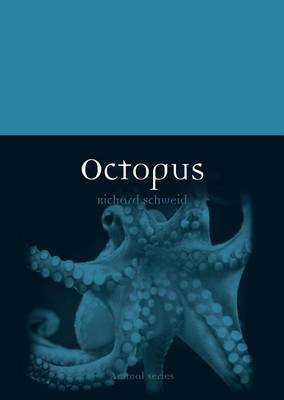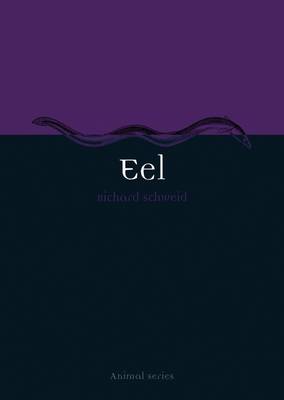Animal
2 total works
"The octopus is generally acknowledged to be the most intelligent invertebrate in the world: according to marine biologists the common octopus (Octopus vulgaris) has a mental capacity comparable with that of a dog. If you look at an octopus the octopus will look back at you, and actually think about and remember what it is seeing. Octopus relates both what is known and unknown about the mind of an octopus, as well as detailing the animal's remarkable natural history. It is thought to have developed intelligence to compensate for the lack of a shell, rather like human beings. That's where the similarity ends, however - the octopus is short-lived, with a lifespan of two years at most, and it mates only once during its life. A wily creature with an extremely sophisticated camouflage system, the octopus can change the color of its skin to blend in with its surroundings; should this fail it deploys clouds of ink to cover a hasty retreat. And there is no more adept escape artist than an octopus, which can squeeze its boneless body through seemingly impossibly tight openings - as many an unwary octopus keeper has discovered to their cost.
Octopus documents the long and multi-faceted relationship between human and cephalopod. It shows how, over the millennia, some people have considered octopuses as nothing more than a tasty meal, and how they are an important component of the modern global fish and seafood industry. Other cultures regard them as erotic totems, or symbols of the darkest evils. The octopus has always fascinated people, and this book will immerse readers in its amazing world."
Octopus documents the long and multi-faceted relationship between human and cephalopod. It shows how, over the millennia, some people have considered octopuses as nothing more than a tasty meal, and how they are an important component of the modern global fish and seafood industry. Other cultures regard them as erotic totems, or symbols of the darkest evils. The octopus has always fascinated people, and this book will immerse readers in its amazing world."
Although it might seem the most mundane of fish when pulled from the mud of creeks, ponds, rivers or the sea, the eel's life cycle is one of the most remarkable on the planet. Freshwater eels are born, according to current scientific theory, in remote ocean depths, and journey thousands of miles to fresh water where they spend their lives, before returning to the ocean to mate and die. A favourite food for humans since antiquity, feeding London's poor during the Middle Ages, and saving the Mayflower pilgrims from starvation on North America's shore, these days the Japanese alone account for an eel consumption worth over a billion pounds a year. Richard Schweid chronicles these creatures in all their aspects: their natural history to their market value; their occurence in art and literature; and their present threatened status. The eel is considered by many to be currently on the road to extinction, and despite repeated attempts to farm them, and the expenditure of huge amounts of time and money, eels have steadfastly refused to reproduce successfully in captivity, apparently requiring the vastness of the open ocean to begin their long drift toward maturity.
Containing many little-known facts about this rather surprising fish, this book will appeal to anyone who enjoys well-written natural history, or who wants to learn more about an animal that deserves much more attention than it has received to date.
Containing many little-known facts about this rather surprising fish, this book will appeal to anyone who enjoys well-written natural history, or who wants to learn more about an animal that deserves much more attention than it has received to date.

